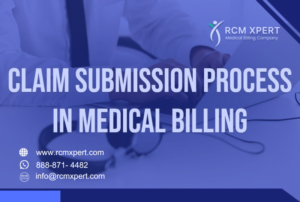To ensure efficient medical billing and protect patient information, compliance with HIPAA regulations is essential for healthcare providers. Here’s why HIPAA compliance is crucial in the context of billing and coding:
Importance of HIPAA Compliance for Billing and Coding
The process of medical coding and billing involves several intricate steps, starting with gathering patient information for registration. This includes sensitive data such as medical history and insurance details. Safeguarding this information is paramount, making HIPAA compliance integral to the process. HIPAA establishes stringent standards to protect patient data throughout medical billing procedures, ensuring confidentiality and security.
Benefits of HIPAA Compliance in Medical Billing and Coding
- Patient Privacy: HIPAA regulations dictate how patient information is disclosed, particularly during electronic claims transmission, to prevent unauthorized access and breaches.
- Building Patient Trust: Compliance with HIPAA enhances patient confidence in healthcare providers, leading to increased appointment rates and improved revenue generation.
- Ensuring Data Security: Compliance prevents unauthorized access to sensitive patient data, maintaining data accuracy and integrity.
- Avoiding Penalties: Noncompliance can result in significant financial penalties, emphasizing the importance of adhering to HIPAA regulations.
- Cost Efficiency: Staying compliant with HIPAA regulations minimizes expenses associated with penalties and potential legal liabilities from data breaches.
- Facilitating Timely Billing: Compliance streamlines the medical billing process, allowing healthcare providers to focus on revenue optimization and efficient claim processing.
Effective Strategies for HIPAA Compliance
Ensuring compliance with HIPAA involves proactive measures:
I. Engage Expert Services: Partner with experienced medical billing services to ensure adherence to HIPAA standards and maximize reimbursements.
II. Staff Training: Regularly educate your medical billing team on updated HIPAA regulations to enhance data privacy practices and compliance awareness.
III. Conduct Technical Assessments: Regularly assess electronic health record systems to identify and address vulnerabilities that could lead to noncompliance.
IV. Implement Robust Technical Support: Utilize advanced technology and encryption methods for secure data storage and transmission to authorized personnel.
V. Prompt Breach Notifications: Adhere to HIPAA guidelines by promptly reporting any data breaches to the Department of Health and Human Services (HHS) to mitigate risks and maintain compliance.
Ensuring Compliance for Smooth Operations
Choosing a reliable medical billing partner ensures seamless operations and timely reimbursements, safeguarding against the repercussions of HIPAA non-compliance and enhancing your practice’s financial health.





